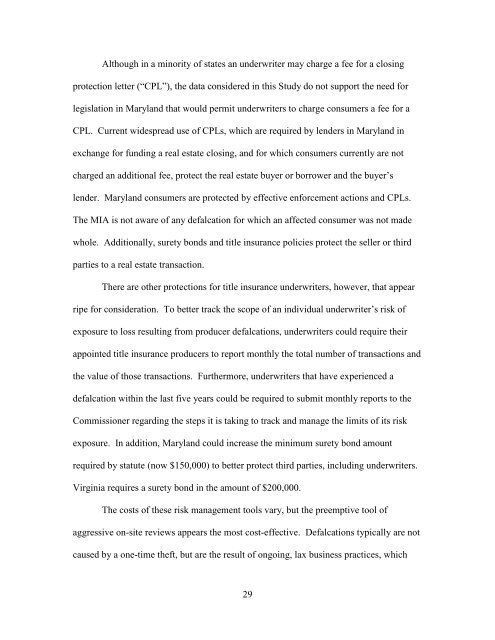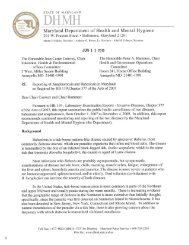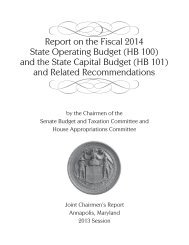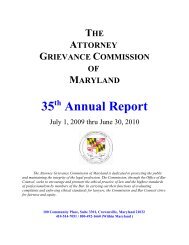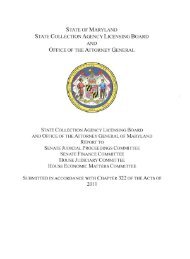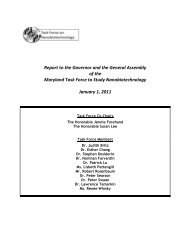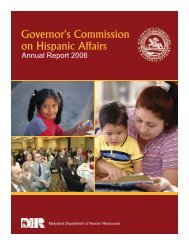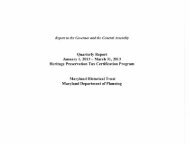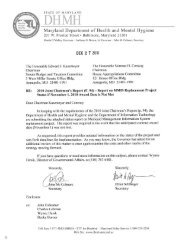report of the commissioner to study - Maryland Insurance ...
report of the commissioner to study - Maryland Insurance ...
report of the commissioner to study - Maryland Insurance ...
Create successful ePaper yourself
Turn your PDF publications into a flip-book with our unique Google optimized e-Paper software.
Although in a minority <strong>of</strong> states an underwriter may charge a fee for a closingprotection letter (“CPL”), <strong>the</strong> data considered in this Study do not support <strong>the</strong> need forlegislation in <strong>Maryland</strong> that would permit underwriters <strong>to</strong> charge consumers a fee for aCPL. Current widespread use <strong>of</strong> CPLs, which are required by lenders in <strong>Maryland</strong> inexchange for funding a real estate closing, and for which consumers currently are notcharged an additional fee, protect <strong>the</strong> real estate buyer or borrower and <strong>the</strong> buyer’slender. <strong>Maryland</strong> consumers are protected by effective enforcement actions and CPLs.The MIA is not aware <strong>of</strong> any defalcation for which an affected consumer was not madewhole. Additionally, surety bonds and title insurance policies protect <strong>the</strong> seller or thirdparties <strong>to</strong> a real estate transaction.There are o<strong>the</strong>r protections for title insurance underwriters, however, that appearripe for consideration. To better track <strong>the</strong> scope <strong>of</strong> an individual underwriter’s risk <strong>of</strong>exposure <strong>to</strong> loss resulting from producer defalcations, underwriters could require <strong>the</strong>irappointed title insurance producers <strong>to</strong> <strong>report</strong> monthly <strong>the</strong> <strong>to</strong>tal number <strong>of</strong> transactions and<strong>the</strong> value <strong>of</strong> those transactions. Fur<strong>the</strong>rmore, underwriters that have experienced adefalcation within <strong>the</strong> last five years could be required <strong>to</strong> submit monthly <strong>report</strong>s <strong>to</strong> <strong>the</strong>Commissioner regarding <strong>the</strong> steps it is taking <strong>to</strong> track and manage <strong>the</strong> limits <strong>of</strong> its riskexposure. In addition, <strong>Maryland</strong> could increase <strong>the</strong> minimum surety bond amountrequired by statute (now $150,000) <strong>to</strong> better protect third parties, including underwriters.Virginia requires a surety bond in <strong>the</strong> amount <strong>of</strong> $200,000.The costs <strong>of</strong> <strong>the</strong>se risk management <strong>to</strong>ols vary, but <strong>the</strong> preemptive <strong>to</strong>ol <strong>of</strong>aggressive on-site reviews appears <strong>the</strong> most cost-effective. Defalcations typically are notcaused by a one-time <strong>the</strong>ft, but are <strong>the</strong> result <strong>of</strong> ongoing, lax business practices, which29


